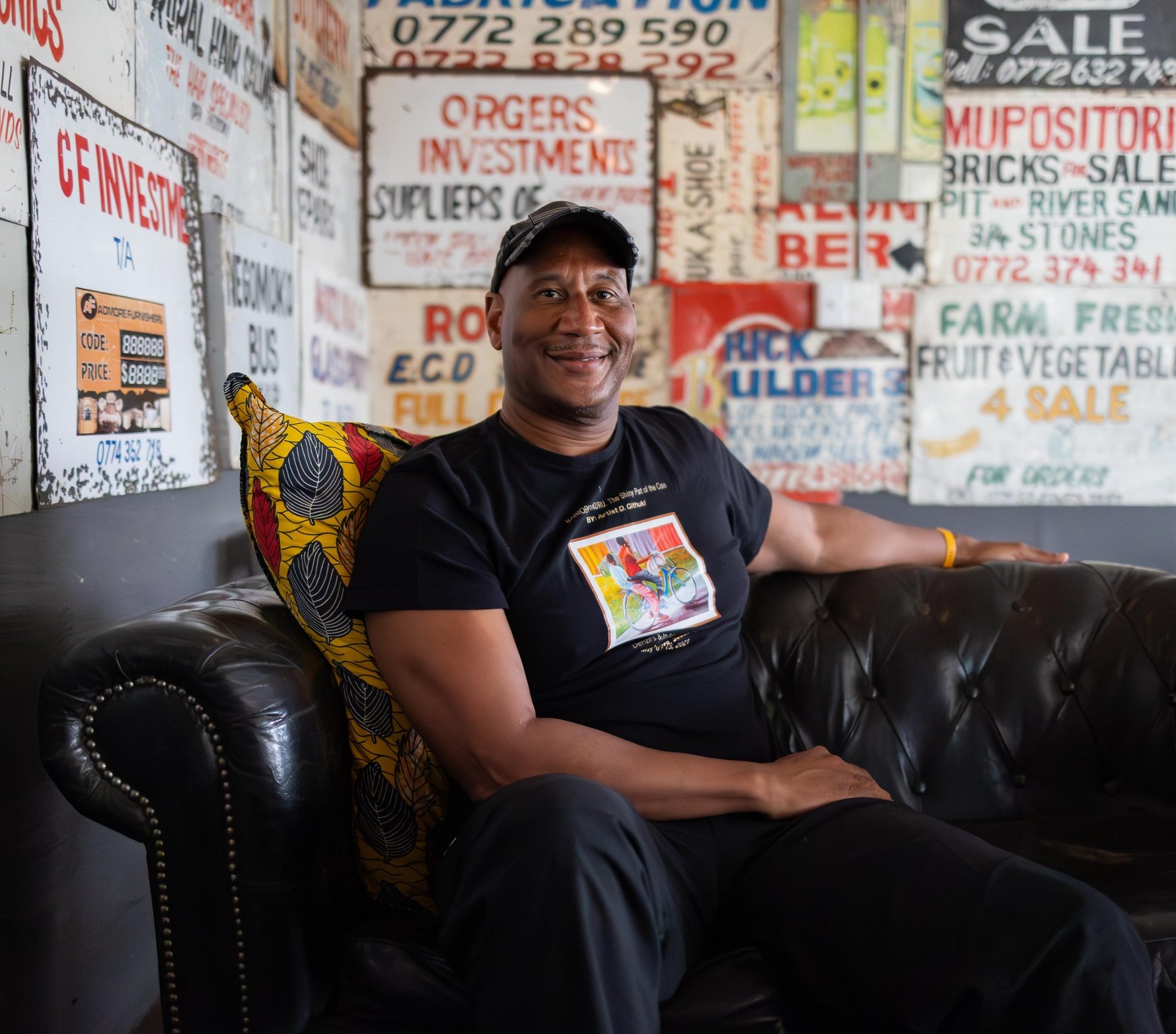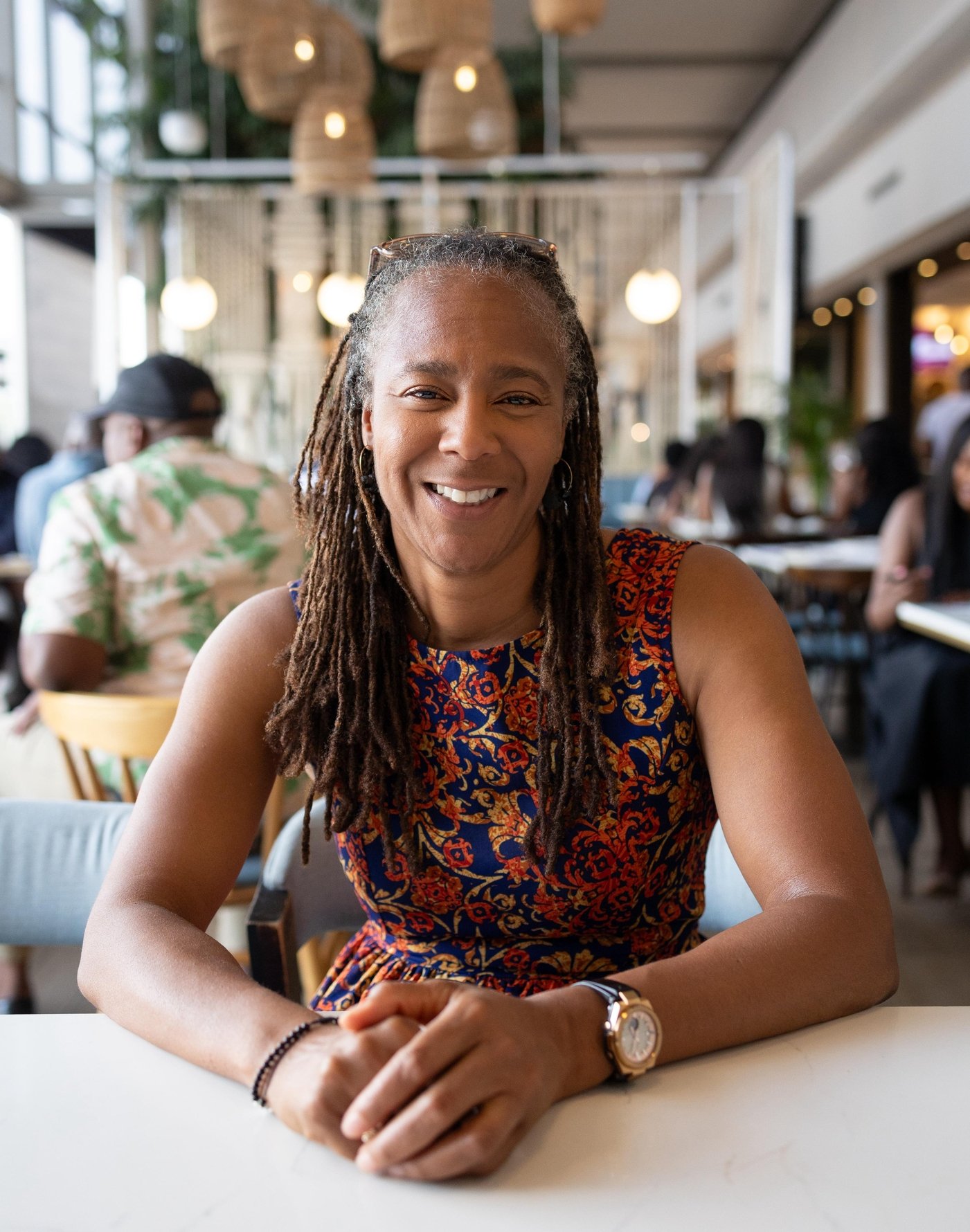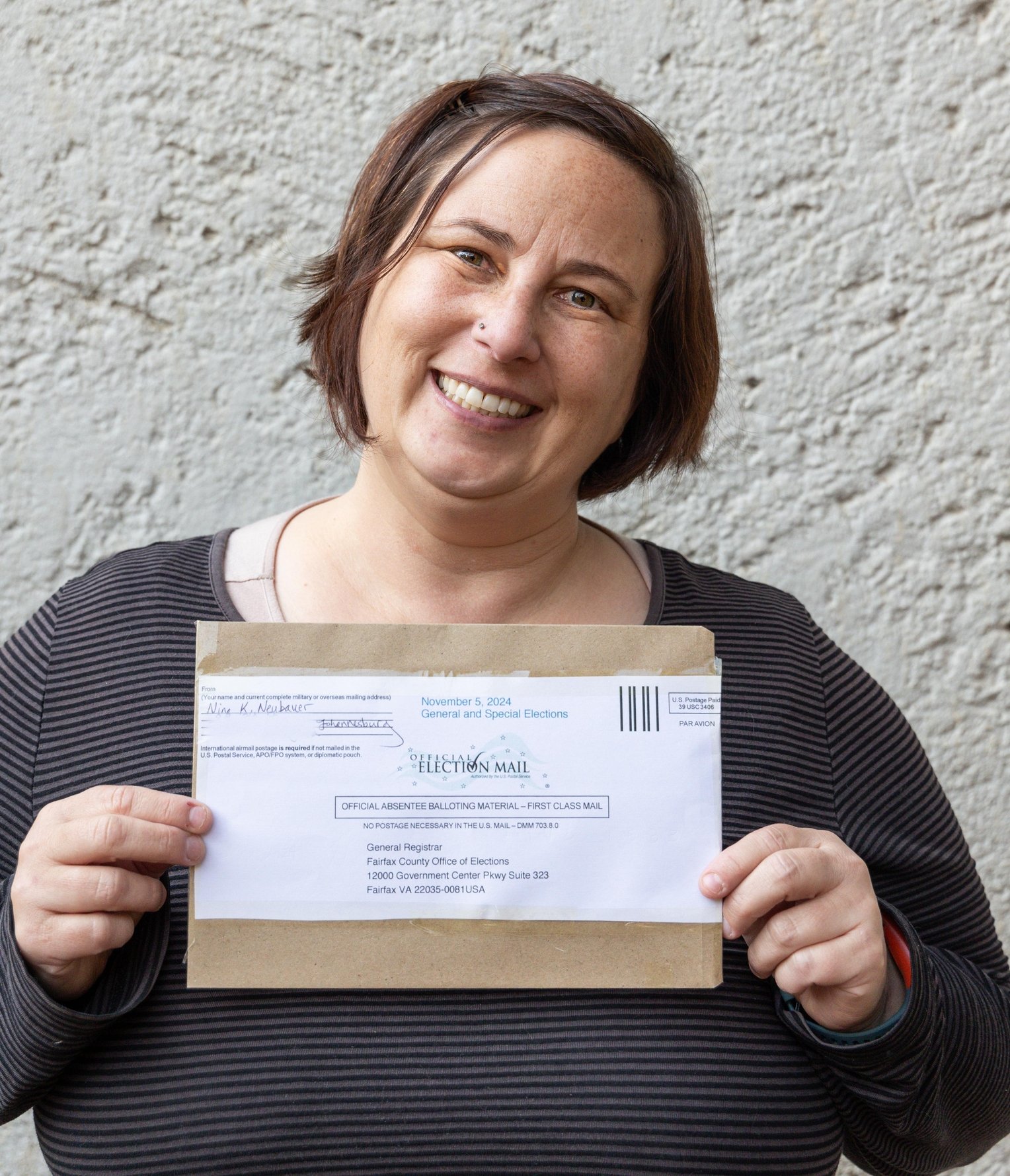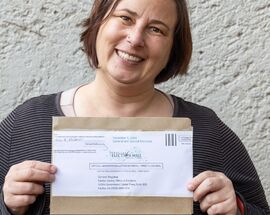Heather Mason is an American writer and photographer known for her popular blog 2summers, where she shares her unique perspective on life in South Africa. Mason moved to Johannesburg in 2010 and calls the characterful suburb of Brixton home.
In 2020 she published a blog post with tips for Americans living in South Africa who wanted to vote in the U.S. presidential election. "Believe it or not, the stakes are even higher in 2024," says Mason. In support of the efforts of Democrats Abroad – the official organisation of the Democratic Party for United States citizens living abroad – Mason set about profiling three Americans who choose to live in Joburg. Along with Mason, discover who they are, why they live here, and why they vote.
But first: If you’re an American citizen living outside the United States, and if you are or will be 18 on Nov 5, 2024, you have the right to vote. And, in Mason's words, "Your vote counts every bit as much as it would if you were living in the U.S."
"You need to act soon (like now-now) to ensure your ballot arrives in time to be counted. If you haven’t registered to receive your ballot yet, I implore you to stop reading right now, go to VoteFromAbroad.org, and register for that damn ballot," is Mason's message to fellow Americans in Joburg.
Voting rules vary by state (Vote From Abroad can help you figure that part out) and voters in several states need to physically send their ballots back to the U.S.; for those states, it’s best to send it by courier to ensure it arrives on time. Find more guidance on voting from South Africa here.
Now, meet a few Americans interviewed by Mason about why they choose to live in Joburg, and why they'll be casting their votes this year.
Charles Belk (voting in North Carolina)

Belk briefly considered a run for Congress in 2016, but after Trump was elected he decided to travel the world, with the goal of visiting 100 countries.
He wound up in Joburg by chance in early 2020, planning a short visit, but decided to ride out the lockdown in an apartment in Hallmark House during Covid and fell in love with the city. He came and went a bit over the following few years and has now decided he wants to retire here. He’d been back in town for about two weeks when we met. (Belk told me he narrowed his retirement options down to five cities – Paris, Buenos Aires, Budapest, Medellin, and Joburg – and chose Joburg.) He’s currently staying in Hurlingham so we met at the nearby Milk Bar in Parkmore.
I asked Belk why he still votes in the U.S. "I think it started with my incident when I got wrongfully arrested. Because then I had a cause to really rally around. The way to solve this is to get involved in the political structure of our country. Once I got engaged and involved, regardless of where I was – if I was in Colombia, if I was in Hungary, if I was in South Africa – I still had that vested interest."
"It’s so easy to leave the United States and forget about what’s going on in the United States… except when you still own property there, when you still have a passport from there, and you have to go back…When Trump was president, it was really shameful to travel because people looked at us differently, in my opinion, than when Barack Obama was president. So I try to stay involved when I’m abroad."
In the past, Belk’s main priority was to make sure he voted himself, in both local North Carolina elections and national elections. But this time he’s "amped it up a little" and he’s deeply involved with encouraging other Americans abroad to vote and helping people to register. "I’m going at it 100%, so much so that I was at this birthday party, registering people online so they can vote abroad. Because a lot of people don’t know how to do that – they don’t even know that they can do that… I’m trying to do everything I can from abroad to get the Vice President elected."
To learn more about Belk and his adventures travelling the world and encouraging people to vote, follow him on Instagram and Facebook at Black Man and Abroad.
Tiwana Merritt (voting in Alaska)

We met for brunch at Ukko, a trendy restaurant in the Nicolway Shopping Centre, and talked for over five hours. I was enthralled by her story and relate to her in so many ways. We’re close to the same age, and we both left America for love and then built lives for ourselves in that new country after our relationships ended. We’ve both been gone from the U.S. for many years – Merritt for 19, me for 14 – and can’t see ourselves back in America.
Like mine, Merritt's work in Joburg has exposed her to an interesting array of South African communities, so that was fun to talk about. We also talked about how our experiences as Americans abroad differ, especially about race. In the countries where she’s lived, Merritt often feels like people see her as "an ambassador to black culture", which can be exhausting. And as a black woman from America, South Africans often treat Merritt differently than they treat me as a white woman.
The experiences Merritt shared made me think. And in a way, this discussion made me think even more about the importance of voting in this particular U.S. election. Merritt talked about previous elections in which she wasn’t super engaged with what was happening in America and didn’t vote. "I felt very much like, what’s the point? We have a broken system… Does this even count?" Merritt talked about the U.S. Electoral College (America’s weird, messed-up system of apportioning presidential votes by state) and how it’s "predicated on a history that supports racism and bias in our country".
Merritt has become more politically engaged as she’s become older. "I think these things matter, and as I age, they will matter even more. I’m still an American and go back and forth home. I still call it my home. I still have family there… and the bigger thing is that my ancestors worked hard for me to have this right and this privilege… I shouldn’t take that lightly. I should be honouring the fact that they struggled to get us this far, that they died – they were harmed, they were beaten. So I do it for them."
Nina Neubauer (voting in Virginia)

"I was born in Germany, but we left Germany when I was three years old. I don’t engage in [Germany’s] political system. But I became a naturalised U.S. citizen later in life – in 2007. Just not being able to vote before, suddenly becoming a citizen and being able to vote, and knowing how important the presidential elections are… I just feel like it’s a privilege. It’s a responsibility, and I want to contribute and make my voice heard."
Heather Mason (voting in Virginia)

I don’t have South African citizenship, and I probably never will. I still pay taxes in the United States, and my entire family still lives there. I go back to visit America for about a month every year. I will never get rid of this damn American accent, and my Americanness will always be the first thing every person notices about me as soon as I open my mouth. So yeah, I’m kind of South African, but I’m also very American, regardless of how long I live overseas. And I vote in every U.S. election, even though it’s kind of a pain because it matters: For me, for Belk, for Merritt, for Neubauer, and every other American, abroad or otherwise.
I’ve printed out my ballot, and as soon as I finish writing this post I’m going to fill it out. I’m voting for Kamala Harris, who I really hope will become the first woman/woman of colour to be President of the United States. I’m going to seal it into an envelope and take it with me back to America, where I will drop it into the first U.S. Postal Service box I see. And I know my vote will count. Yours will, too!
Vote now!
Go to VoteFromAbroad.org to get started.For more information on how to vote in the U.S. 2024 elections from South Africa, read this guide.
If you’d like to get involved with other Americans engaged in this election in Joburg or around the country, join Democrats Abroad South Africa.
This article was written by Heather Mason and sponsored by Democrats Abroad.




_m.jpg)


Comments